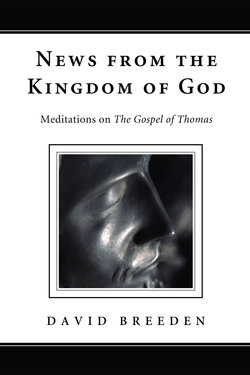Читать книгу News from the Kingdom of God - David Breeden - Страница 8
На сайте Литреса книга снята с продажи.
Introduction
ОглавлениеA New Way of Seeing
In a letter dated Sunday, 21 December 1817 to “my dear brothers,” the British poet John Keats outlined his concept of how to be a great poet, which he called “Negative Capability.” By this he meant a poet “capable of being in uncertainties, mysteries, doubts, without any irritable reaching after fact and reason.” For Keats the great example was Shakespeare. In a great poet, “the sense of Beauty overcomes every other consideration, or rather obliterates all consideration.”
For me, this idea encompasses both the writing of poetry and the way of living a consciously spiritual life.
Uncertainties. Mysteries. Doubts.
Irritable reaching. Fact. Reason.
Both Keats and the Buddha thought these diminish our spirits. Jesus thought so too, at least the Jesus portrayed in the Gospel of Thomas, who is a poet, a poet teaching what Keats came to call Negative Capability.
After all, despite all efforts to cage them, the words of Jesus have never been caught. Not in the Second Century when many of the Christian scriptures were written; not in the Twelfth Century, high-water mark of Roman Catholic Europe; not at the height of Western Imperialism in the Twentieth Century; not now. All claims to a “church universal” have proven to be so much provincial bragging. The words of Jesus have never been caged.
Bookstore shelves have filled with titles containing the word “new” in front of the word “Christianity.” Clearly, I am not the only “tradition Christian” who has felt a lack in Christianity. Sometime in its two thousand year journey, Christianity became more interested in the story of Jesus rising from the dead—the otherworldly magic—than the hard work of living in this world. Christianity became a set of propositions to believe in—no matter how difficult that belief became—rather than a way to live a life of peace, care, and relationship. Yet, when we turn to the words of the Gospels, the red letters of the words of Jesus, isn’t it peace, care, and relationship—to the sacred and to each other—that we read about? Somehow, Christianity lost its way.
Yet, a framework survives: metanoia, kenosis, and perichoresis—changing the mind; emptying the self; joining in the dance of the sacred. That is the process Keats imagined; it is the process The Gospel of Thomas invites us to. There is no belief; only practice.
